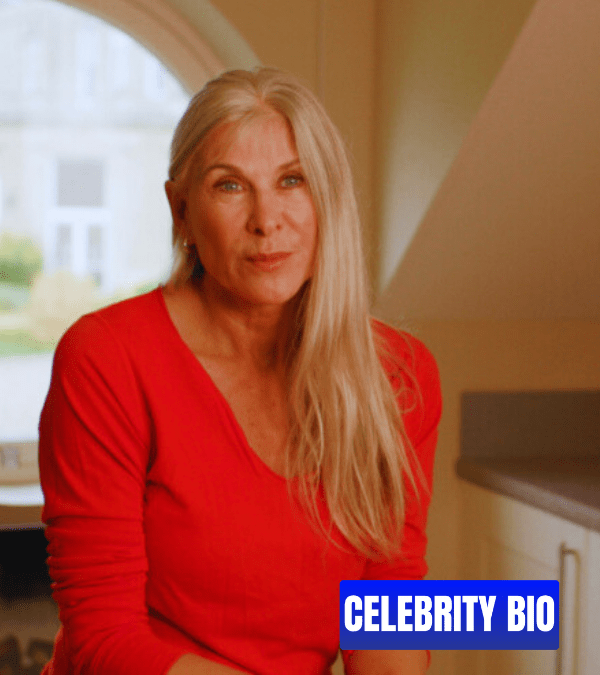Few athletes have managed to remain relevant across five decades of British sport quite like Sharron Davies. Known first as a prodigious swimming talent and later as a fierce campaigner for fairness in women’s sport, her career bridges the worlds of athletic excellence, broadcasting, and advocacy.
Born in Plymouth, Sharron Davies became a household name while still in her teens. Her dedication, focus, and power in the pool brought her international acclaim — and later, her voice outside of it made her one of the most talked-about women in British sport.
In this in-depth look at her life, we’ll trace the evolution of a girl who learned to swim before she could ride a bike, who stood on Olympic podiums before her 20th birthday, and who now stands firm in debates shaping the future of global sport. From triumphs and controversies to her lasting influence, this is the remarkable story of Sharron Davies — a true British icon of resilience, courage, and conviction.
Early Life and Passion for Swimming
Sharron Davies was born on 1 November 1962 in Plymouth, Devon, a coastal city that naturally lent itself to a life in water. Her father, Terry Davies, was a dedicated swimming coach who recognised his daughter’s natural athletic potential early on. Under his guidance, Sharron began training seriously before most children her age were allowed near a competition pool.
By the time she was eight, she was breaking age-group records. Her talent was not only evident but undeniable. Unlike many young athletes who dabble in sport for fun, Sharron trained with professional intent. Early mornings, endless laps, and a relentless pursuit of perfection defined her childhood.
Her determination paid off quickly. At just 11 years old, she qualified for the 1974 Commonwealth Games trials — an almost unheard-of achievement at the time. Those who witnessed her swim described a rare mix of grace and strength that made her a natural competitor.
Sharron Davies’ Rise to Olympic Stardom
Sharron’s rise to international prominence came fast and fierce. By 13, she had earned her place on the British Olympic team for the 1976 Montreal Games, making her one of the youngest swimmers ever to represent the United Kingdom. Competing against seasoned professionals, she held her own with remarkable composure.
Although she didn’t win a medal that year, the experience set the stage for her future success. The lessons learned — about pressure, preparation, and perseverance — would fuel her next chapter.
Four years later, she returned to the Olympic stage at the 1980 Moscow Games, stronger, more experienced, and utterly determined. There she claimed the silver medal in the 400-metre individual medley, narrowly missing gold to East German swimmer Petra Schneider — a race later overshadowed by revelations of state-sponsored doping.
Despite the controversy, Sharron’s achievement was celebrated across Britain. She had not only proven herself on the world’s greatest stage but also inspired a new generation of British athletes to believe they could compete with the best.
Career Highlights and Medals
During her career, Sharron Davies collected an impressive list of titles and accolades that cemented her place in British sporting history.
Major Achievements Include:
- 🥈 Olympic Silver Medal – 1980 Moscow Games (400m Individual Medley)
- 🥇 Commonwealth Gold Medals – 1978 and 1986 (200m and 400m IM events)
- 🥇 European Championships – multiple podium finishes in freestyle and medley events
- 🥇 British National Titles – more than 20 national titles during her competitive career
These results made her one of Britain’s most decorated swimmers of the 1970s and 1980s. Her competitive style combined raw power with fluid technique, and her disciplined training regimen became a model for aspiring swimmers nationwide.
Transition from Athlete to Broadcaster
After retiring from elite competition in the late 1980s, Sharron Davies made a smooth transition into the media world. Her charisma and confidence in front of the camera quickly made her a favourite among viewers.
She became a regular presenter for BBC Sport, covering major swimming events, Olympic Games, and sports documentaries. Her articulate commentary and in-depth understanding of athletic psychology brought a new level of professionalism to British sports broadcasting.
Beyond commentary, she appeared on popular British television shows such as Gladiators, Dancing on Ice, and The Games, showcasing her versatility and broad appeal.
Her role in the media also allowed her to continue promoting fitness, health, and sports participation among young people — a mission she has passionately championed ever since.
Advocacy and Controversy
In recent years, Sharron Davies has become widely recognised for her advocacy around fairness in women’s sport. She has been outspoken about ensuring that female athletes compete on an equal playing field, particularly in debates surrounding transgender participation in competitive women’s categories.
Her stance has been both praised and criticised. Supporters see her as a brave voice standing up for biological fairness and the integrity of women’s competition. Critics, however, have accused her of being divisive or exclusionary.
Despite the backlash, Sharron has remained steadfast, arguing that advocating for women’s rights in sport does not equate to discrimination but rather seeks to preserve opportunities for biological females in elite competition.
In interviews, she often draws on her personal experience from the 1980 Olympics, where she competed against East German athletes who later admitted to systematic doping. To her, that unfairness echoes today’s complex debates.
Her commitment to speaking openly — even at personal cost — reflects the same determination that once carried her to Olympic glory.
Personal Life and Resilience

Away from the spotlight, Sharron Davies has lived a life defined by balance, resilience, and reinvention. She has been married twice and is the mother of three children. Despite personal ups and downs, she has consistently prioritised her family while maintaining her professional commitments.
Fitness remains central to her daily life. Even after retirement, she continues to swim regularly, advocate for youth sports participation, and encourage others — particularly women — to stay active throughout life.
Her social media presence showcases not only her advocacy but also her warmth and humour. Whether she’s discussing training routines, public policy, or life lessons, she continues to engage an audience that spans generations.
Sharron Davies’ Impact on British Sport
Beyond medals and media appearances, Sharron Davies’ true impact lies in her role as a trailblazer for British women in sport. She broke barriers for young female athletes in the 1970s, became one of the first to balance sport and celebrity, and continues to challenge systems that she believes disadvantage women.
Her influence can be seen in the growing visibility of female sports personalities and the ongoing discussion about equality in athletics. Younger British swimmers often cite her as a role model — someone who not only succeeded but also used her platform responsibly.
Her advocacy has contributed to national conversations about how sports organisations define fairness, gender, and inclusion — topics that will shape the next generation of athletes.
Recognition and Awards
Over the years, Sharron Davies has received numerous honours acknowledging both her sporting excellence and her public service.
Notable Recognitions:
- Member of the Order of the British Empire (MBE) for services to sport.
- BBC Sports Personality of the Year finalist in recognition of her Olympic success.
- Honorary awards from various sports councils for promoting physical activity and gender equality.
- Author of several fitness and motivational books encouraging young people to lead active lifestyles.
Her enduring commitment to British sport, both as an athlete and ambassador, has made her a respected figure long after her retirement from competition.
Sharron Davies Today
Today, Sharron Davies remains as active as ever — in both mind and body. She continues to appear as a commentator for major swimming events and is a prominent speaker at conferences on sports ethics and gender policy.
She is also a passionate supporter of grassroots sports programmes, believing that accessibility and fairness must begin at the youth level.
In 2023, she published a book discussing her life, experiences, and thoughts on modern sporting challenges — offering a deeply personal account of her journey from teenage prodigy to outspoken public figure.
Despite online criticism, she continues to champion open dialogue and factual discussion in an era often polarised by social media debates. Her resilience, clarity, and refusal to be silenced demonstrate the same mindset that once made her a world-class competitor.
Lessons from Sharron Davies’ Life
The story of Sharron Davies is about more than medals. It’s about the courage to speak up, the discipline to persevere, and the grace to adapt to new challenges.
From a small-town swimmer to an Olympic silver medallist and national advocate, she has shown that success is not confined to a single moment of victory. It’s built over years of dedication, reflection, and reinvention.
Her journey offers valuable lessons for anyone striving for excellence:
- Work ethic matters — talent without persistence fades quickly.
- Integrity endures — standing by your principles brings long-term respect.
- Change is inevitable — embracing new roles keeps you relevant and fulfilled.
- Use your voice — influence is a privilege, and speaking truth can inspire change.
FAQs about Sharron Davies
What is Sharron Davies best known for?
Sharron Davies is best known as a British Olympic swimmer who won a silver medal at the 1980 Moscow Games and later became a respected sports broadcaster and advocate for fairness in women’s sport.
What medals did Sharron Davies win at the Olympics?
She won a silver medal in the 400-metre individual medley at the 1980 Olympic Games in Moscow.
What is Sharron Davies’ stance on fairness in women’s sports?
She advocates for biological women to compete in female categories, arguing that fairness and safety must remain central to sport. Her stance has sparked both support and criticism.
Is Sharron Davies still involved in sports today?
Yes, she continues to work as a commentator, public speaker, and author, actively involved in promoting youth sport and fairness in competition.
How has Sharron Davies influenced British swimming?
Her success inspired generations of swimmers, particularly young women, to pursue competitive swimming and believe that British athletes could excel on the world stage.
Conclusion
From her first splash in Plymouth to her silver medal in Moscow and her current advocacy on sporting fairness, Sharron Davies has lived a life defined by courage, excellence, and authenticity. Her story reminds us that greatness is not simply about victory but about standing firm for what you believe in — even when the current is against you.
As debates over gender, fairness, and inclusion continue to evolve, her voice remains one of reasoned conviction. Whether you agree or disagree with her, Sharron Davies has undeniably shaped the conversation — and that alone secures her place among Britain’s most influential sporting figures.

